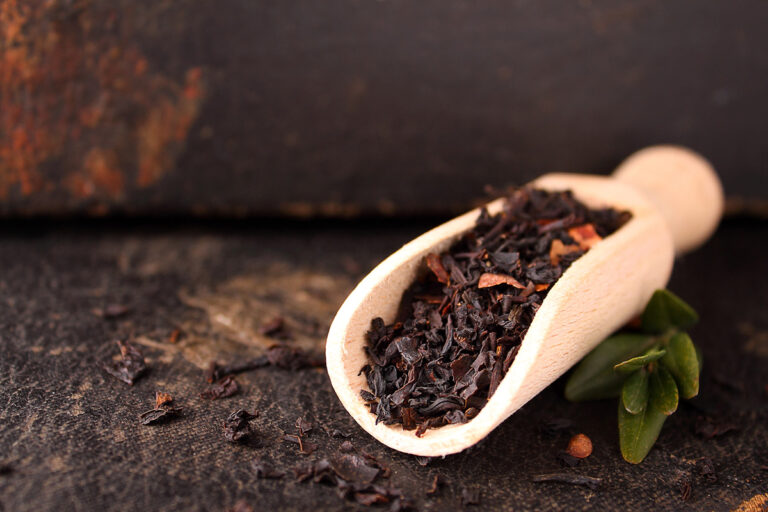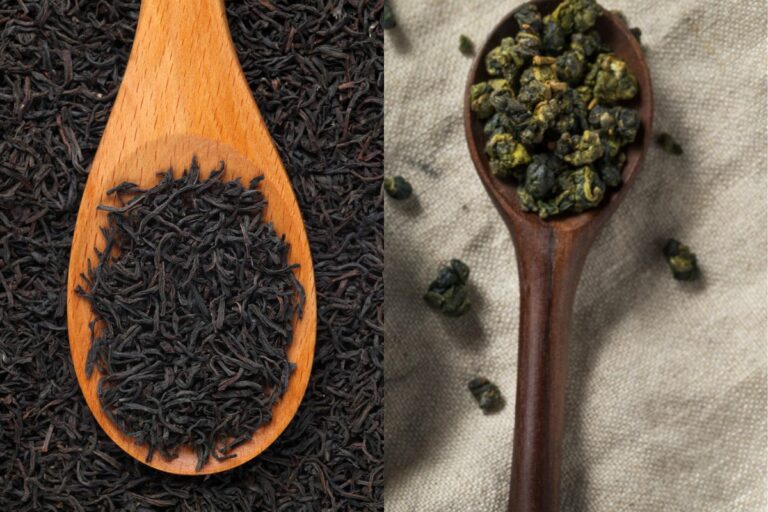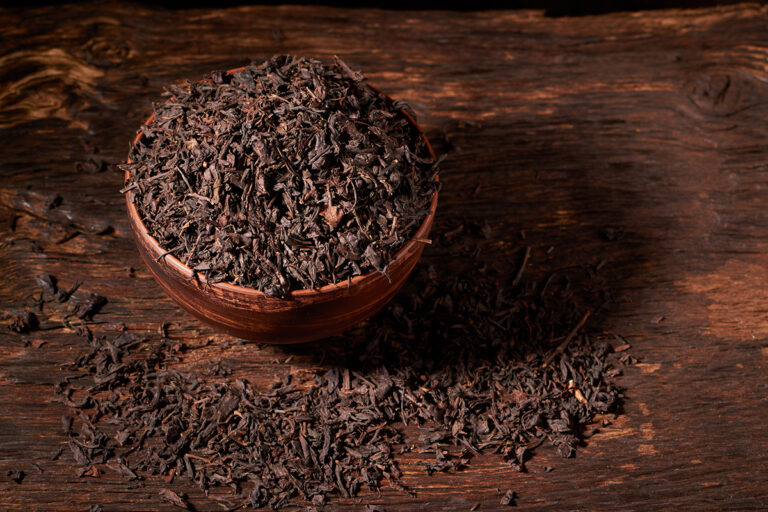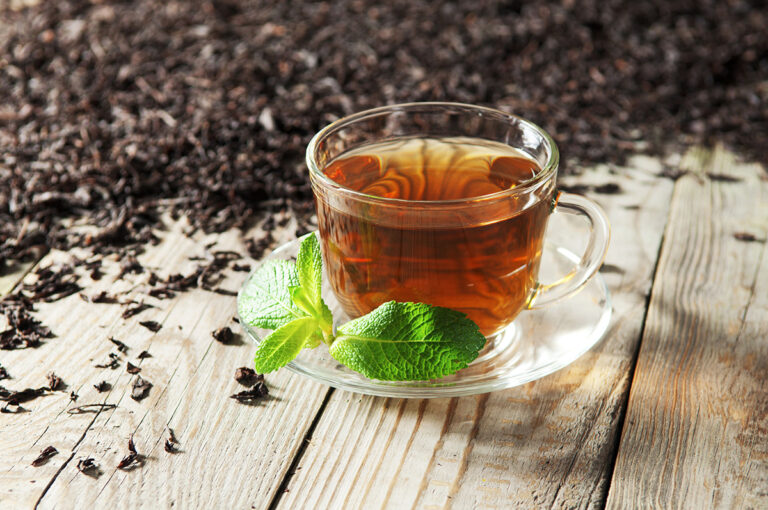Does English Breakfast Tea Have Caffeine?
English breakfast tea is a traditional blend of strong black teas, primarily from Assam, Ceylon, and Kenya. It is known for its full-bodied, robust flavor and is commonly enjoyed with milk and sugar.
Those new to this strong tea often ask: does English breakfast tea have caffeine? The simple answer to your question is yes. English breakfast tea does indeed contain caffeine. On average, an 8-oz cup of English breakfast tea has approximately 40-70 milligrams of caffeine.
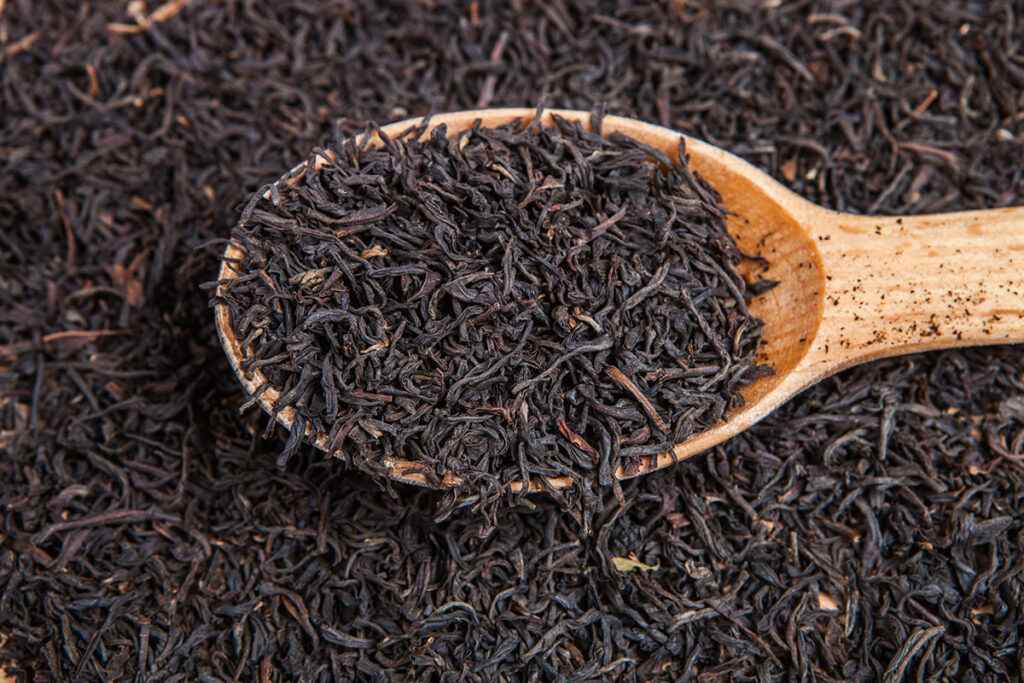
How Much Caffeine Is in Twinings English Breakfast?
You get a moderate caffeine boost when sipping Twinings English breakfast tea. An 8-oz cup of this particular tea contains approximately 40 milligrams of caffeine.
Comparison of Caffeine in English Breakfast Tea vs. Other Teas
To better understand the caffeine content in English breakfast tea, comparing it to other popular tea varieties is helpful. Here’s a comparison of English breakfast tea’s caffeine levels with other teas.
| Type of Tea | Caffeine (mg) |
|---|---|
| English Breakfast | 40-70 |
| Irish Breakfast | 50-90 |
| Earl Grey | 55-65 |
| Green Tea | 20-45 |
| Matcha Tea | 60-80 |
| Oolong Tea | 30-50 |
| White Tea | 15-30 |
| Yellow Tea | 30-50 |
| Chai Tea | 25-50 |
| Herbal Teas | 0 |
Does English Breakfast Tea Have More Caffeine Than Coffee?
When compared to coffee, English breakfast tea has significantly less caffeine. The average 8-oz cup of coffee typically contains between 95 and 200 milligrams of caffeine, substantially more than your English breakfast tea.
Factors Affecting the Caffeine Content in English Breakfast Tea
Several factors influence the caffeine content in your cup of English breakfast tea:
- The Type of Tea Leaves: The type and age of the leaves can significantly impact the caffeine content. Older leaves tend to have less caffeine than younger ones.
- Steeping Time: The longer the tea steeps, the more caffeine is extracted.
- Water Temperature: Higher temperatures can extract more caffeine.
- Amount of Tea Used: More tea leaves in your cup mean more caffeine.
- Processing: The processing method of the tea leaves can also influence the caffeine level.
How to Decrease the Amount of Caffeine in English Breakfast Tea?
If you’re looking to enjoy English breakfast tea but want to limit your caffeine intake, consider these tips:
- Steep for a Shorter Time: Limiting the time your tea steeps can reduce the caffeine content.
- Use Cooler Water: Less caffeine is extracted at lower temperatures.
- Choose Decaffeinated: Many brands offer decaffeinated English breakfast tea options.
- Use Fewer Tea Leaves: Less tea will result in less caffeine.
Best English Breakfast Teas to Consider
Over the years, we’ve sampled many English breakfast teas, in tea bags and loose-leaf, caffeinated and decaf. Based on our tastings, these are the best English breakfast tea brands you may want to consider.
Final Thoughts
With its rich, robust flavor and moderate caffeine content, English breakfast tea offers a delightful start to any day. Whether you prefer the caffeine jolt of a traditional blend or the mellower kick of a decaffeinated version, you will surely find the perfect cup in this classic British brew.
Remember, factors like the type of tea leaves, steeping time, water temperature, and the amount of tea used can all affect the caffeine content. With this in mind, you can adjust your brew to suit your caffeine needs.

